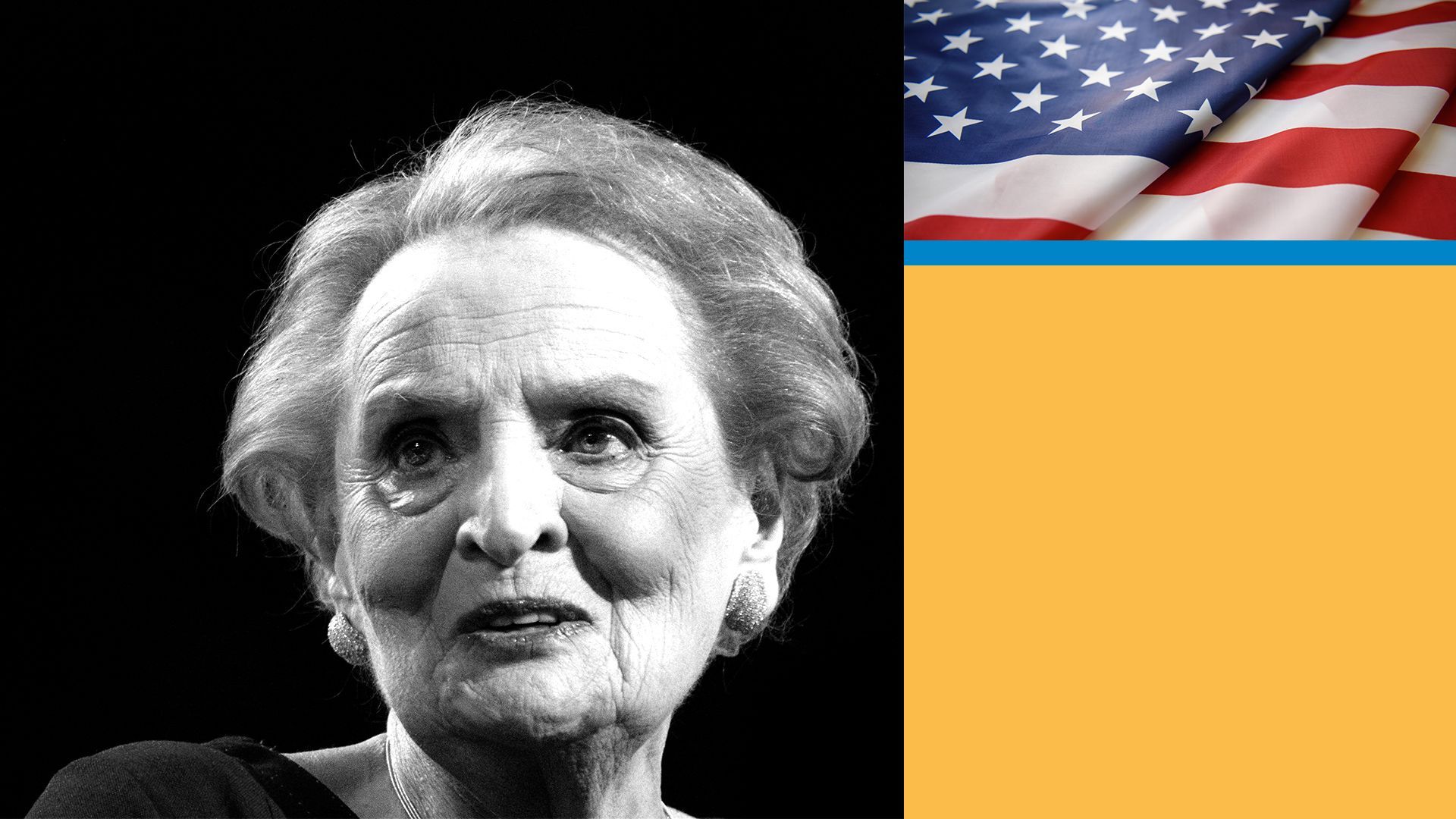Madeleine Albright on the stakes of the election for America's global role
Add Axios as your preferred source to
see more of our stories on Google.

Photo Illustration: Axios Visuals. Getty Images photos: Benjamin Lowy
"I'm disappointed," Madeleine Albright says when asked about the lack of collective action on the pandemic, including at the UN this week. "Am I surprised? No."
What she's saying: "Given the kind of atmosphere that is out there by virtue of America's lack of interest — more than lack of interest, undermining — of an international system, it's hard."
Albright represented the U.S. as ambassador to the UN (1993-1997) and as secretary of state (1997-2001) when American power was near its apex.
- She says that power is still there to be exerted to spur global action on issues like the pandemic, climate change and nuclear proliferation.
- "There is nothing better than representing the United States, but you have to decide how you are going to use that power in terms of getting others to cooperate and be a part of a common solution."
- "It requires a kind of diplomacy that is in many ways built on day-to-day relationships — putting ourselves in another country's shoes," she says.
The other side: President Trump made much the opposite argument in his address to the General Assembly, contending that the world would be better off if countries followed his lead and focused on their own populations.
- Albright, who has endorsed Joe Biden, contends that there's still time for a course correction — but that if Trump is reelected, the "U.S.-led" global system may be impossible to put back together.
- "Another four years of this, and it really is going to be increasingly difficult to persuade anybody that we are going to be dependable partners," she says.
Her bottom line: "After a while, I think people will say, 'If you don't want to be a partner, then go do your thing and we'll do ours.'"
Go deeper:
